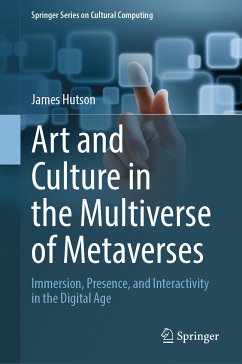
Kawaii Engineering (eBook, PDF)
Measurements, Evaluations, and Applications of Attractiveness
Redaktion: Ohkura, Michiko
Versandkostenfrei!
Sofort per Download lieferbar
136,95 €
inkl. MwSt.
Weitere Ausgaben:

PAYBACK Punkte
68 °P sammeln!
"Kawaii" is a Japanese word that denotes "cute," "lovable," or "charming" although it does not have exactly the same meaning as those adjectives. This book proposes engineering methodologies for systematic measurement of the affective perception of kawaii, by using virtual reality and biological signals, and discusses the effectiveness of kawaii engineering for designing industrial products and services. Kawaii can draw sympathy from people and can embody a special kind of cute design, which reduces fear and makes dull information more acceptable and appealing.Following the introduction of the...
"Kawaii" is a Japanese word that denotes "cute," "lovable," or "charming" although it does not have exactly the same meaning as those adjectives. This book proposes engineering methodologies for systematic measurement of the affective perception of kawaii, by using virtual reality and biological signals, and discusses the effectiveness of kawaii engineering for designing industrial products and services. Kawaii can draw sympathy from people and can embody a special kind of cute design, which reduces fear and makes dull information more acceptable and appealing.
Following the introduction of the background of kawaii engineering in Chapter 1, Chapters 2 and 3 describe experiments on the systematic measurement and evaluation methods for kawaii products and affective evaluation experiments. Chapter 4 proposes a mathematical model to identify the physical attributes that determine kawaii in motion. Chapters 5 and 6 explain research that uses biological signals and eye-tracking. After a brief survey of psychological research on kawaii and cuteness in Chapter 7, Chapters 8 and 9 introduce the use of spoons designed to stimulate the appetite of the elderly and the practical implementation of an emotion-driven camera. Chapters 10-14 explain experimental research that examines kawaii perception of people from various cultural backgrounds.
Kawaii Engineering will appeal to those who work on affective computing, product design, user experience design, virtual reality, and biological signals.
Following the introduction of the background of kawaii engineering in Chapter 1, Chapters 2 and 3 describe experiments on the systematic measurement and evaluation methods for kawaii products and affective evaluation experiments. Chapter 4 proposes a mathematical model to identify the physical attributes that determine kawaii in motion. Chapters 5 and 6 explain research that uses biological signals and eye-tracking. After a brief survey of psychological research on kawaii and cuteness in Chapter 7, Chapters 8 and 9 introduce the use of spoons designed to stimulate the appetite of the elderly and the practical implementation of an emotion-driven camera. Chapters 10-14 explain experimental research that examines kawaii perception of people from various cultural backgrounds.
Kawaii Engineering will appeal to those who work on affective computing, product design, user experience design, virtual reality, and biological signals.
Dieser Download kann aus rechtlichen Gründen nur mit Rechnungsadresse in A, B, BG, CY, CZ, D, DK, EW, E, FIN, F, GR, HR, H, IRL, I, LT, L, LR, M, NL, PL, P, R, S, SLO, SK ausgeliefert werden.












